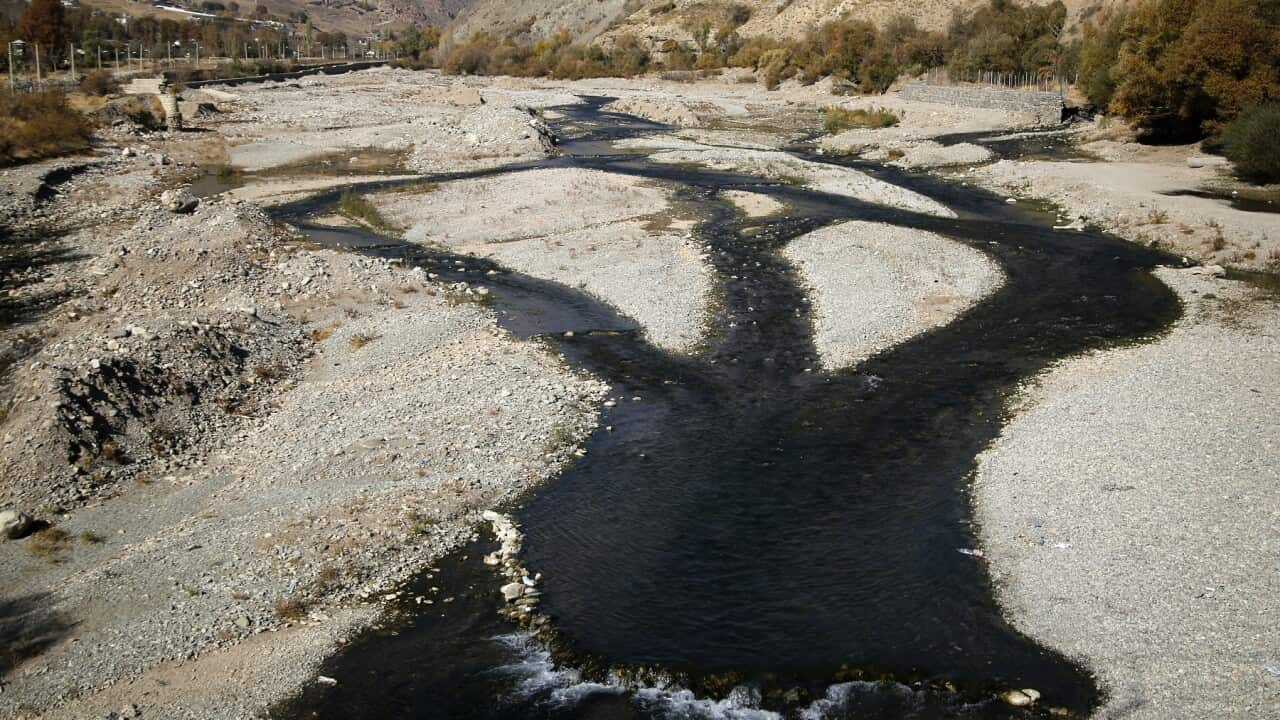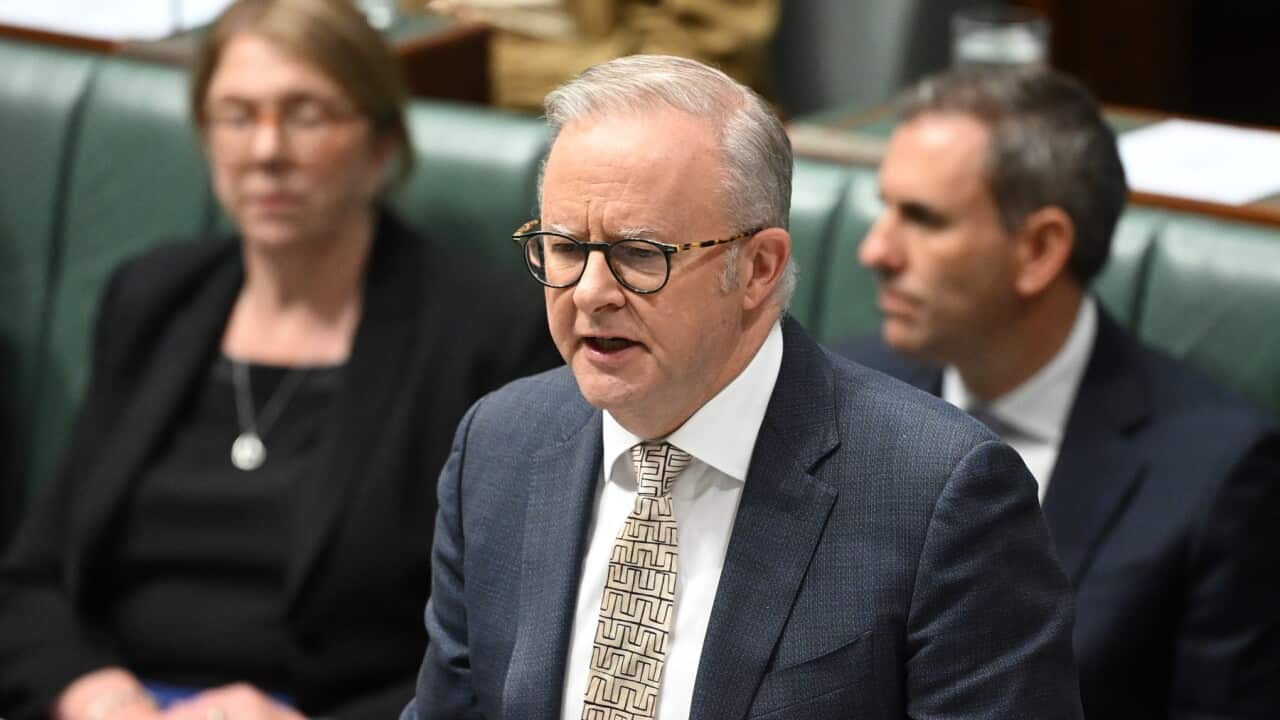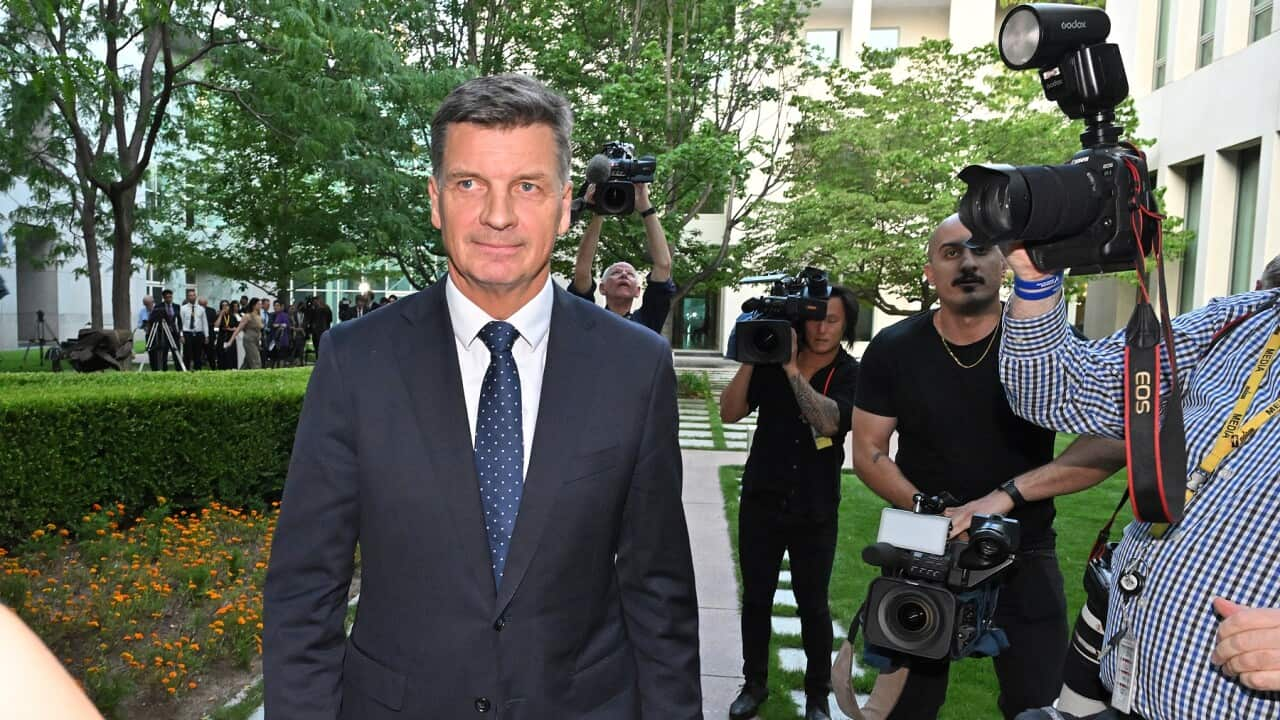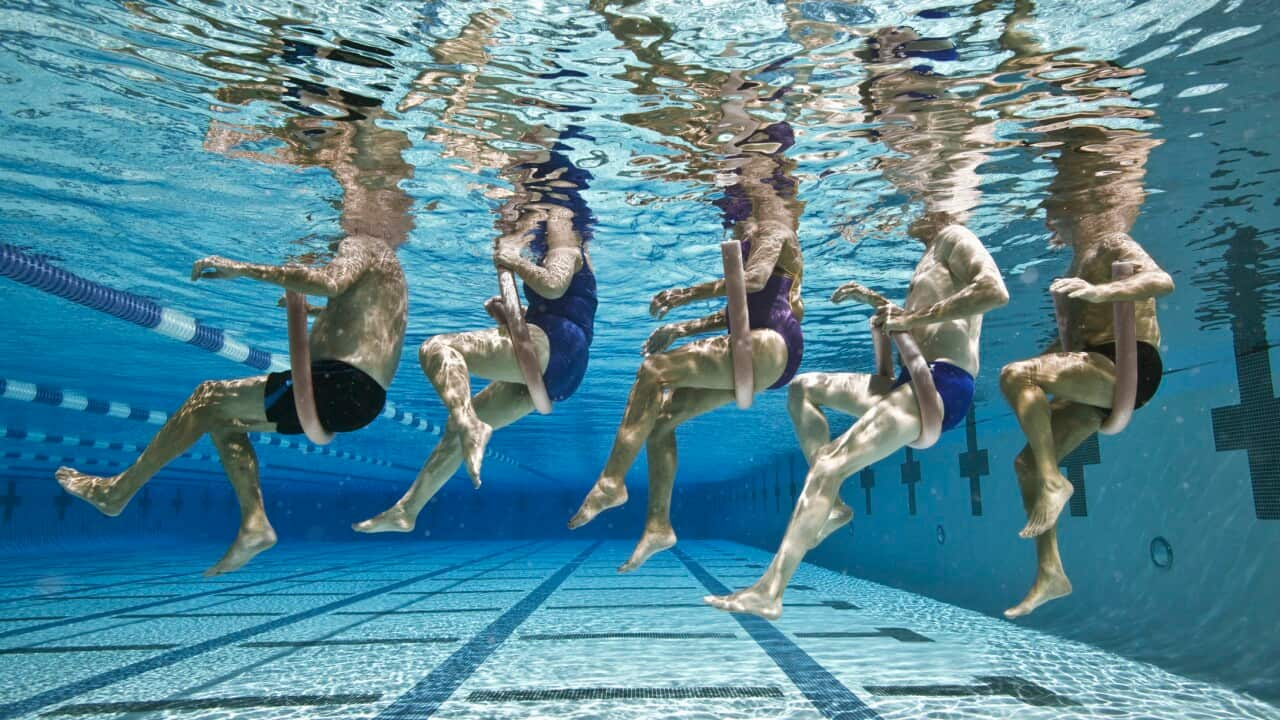Listen to Australian and world news, and follow trending topics with SBS News Podcasts.
TRANSCRIPT:
At Karaj Dam in northern Iran, it's an increasingly dire situation.
Supplying both Tehran and neighbouring Alborz province, it has reached what officials call 'dead capacity'.
This is Mohammad Ali Moallem, the Karaj Dam manager.
"Unfortunately we didn't have enough rain and rain has reduced by 90 to 92 percent compared to last year."
Some Tehranis have told SBS their taps are unpredictable - that at times there's no water at all.
We've changed this person's voice to protect their identity, and concern over potential backlash from criticising the regime.
"Tanks we keep in the building would run low on water during the day because of the weak pressure. But now the issue has gone beyond water pressure, and the water is cut off at night."
The Iranian President, Masoud Pezeshkian, issued this warning earlier this week.
"We've run short of water. If it doesn't rain, we in Tehran, in the month of Azar, must start rationing. Still, it's not clear — even if we do ration and it still doesn't rain, then we'll have no water at all. They must evacuate Tehran."
We've been told anxiety over water is growing in the city.
"But if it goes any further than this, or crosses that threshold, and we are facing water shortage or almost a kind of water famine ... There's no other choice but to leave the province and move to areas with more water."
Iran has been experiencing a severe drought for more than five years.
But some experts have long warned this situation is also due to water mismanagement.
The director of the United Nations University Institute for Water, Environment and Health, Kaveh Madani, also warned of this situation back in the early 2000s.
Later, while serving as Iran's deputy environment minister from 2017 to 2018, he raised serious concerns about the worsening water shortage and criticised the regime's water management.
In response, he was accused of being a "water terrorist" by Keyhan Newspaper, which has links to Iran's Supreme Leader Ayatollah Ali Khamenei.
"The water bankruptcy situation in Iran is the product of years of mismanagement, lack of foresight and over-reliance on technology, dismissing the fact that water can be a limit to growth, exacerbated by a long drought and climate change."
Water security is of huge concern for the North Africa and Middle East region.
Quentin Grafton is a professor of economics and convenor of the Water Justice Hub at the Australian National University.
He says some countries in this region, especially those with large and growing populations, are struggling to keep up with the demand for freshwater resources.
"The situation is dire. It depends on the country, but if you look at North Africa, there's very little surface flow. There's groundwater, but that groundwater is being used up rapidly. You've got countries in the Middle East that do have sources of water ... but there is conflicts around how that water is going to be allocated across countries."
In Tehran, residents have been warned of a looming 'day zero' - when residential taps are turned off and water is redirected to local collection points.
One Tehrani told us this.
"We kept telling ourselves, It'll get better, it'll get better. But the water crisis is no longer something that hope alone can fix . You turn on the tap and there's no water. You have to experience that to understand how terrifying it is."













